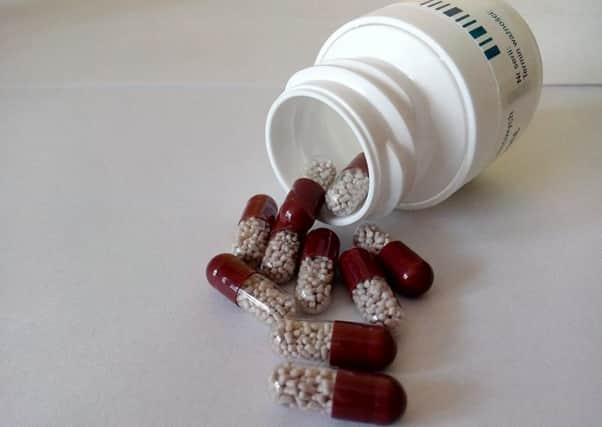Overhaul of access to new medicines on Scottish NHS


Health Secretary Shona Robison announced a raft of new measures to improve the medicine approval system, which has come under fire for lack of transparency and consistency.
A review by former NHS Fife chief executive Dr Brian Montgomery set out a range of recommendations to beef up powers for the Scottish Medicines Consortium (SMC), the body which chooses medicines for NHS use.
Advertisement
Hide AdAdvertisement
Hide AdIt comes after an outcry over the decision to refuse Scots breast cancer patients access to a drug available in England.
Ms Robison said: “Access to new medicines for rare or end-of-life conditions has substantially increased in recent years, but we wanted to go further.
“The reforms I am announcing today will help more patients to get better access to treatments that can give them longer, better quality lives.”
The NHS will have a stronger role in negotiating costs with drugs companies and the regulator will be able speed up the process by temporarily approving medicines while it gathers further evidence.
Individual requests for rare medicines will be handled by a new system and there will be a national appeals process.
The current system has attracted criticism over who is given access to drugs not routinely available on the NHS.
First Minister Nicola Sturgeon stepped in when the case of Anne MacLean-Chang, from Elgin, was covered in a national newspaper after she was denied the breast cancer drug Kadcyla.
Lesley Stephen, of Edinburgh, was forced to fund the treatment herself.
Advertisement
Hide AdAdvertisement
Hide AdThe mother-of-four said: “I felt incredibly frustrated and let down. This was compounded when I realised that other women with secondary breast cancer, living in different parts of Scotland, could access a drug that I had just been refused.
“I hope that these changes will now put women, like me, and their families first.”
Mary Allison, Breast Cancer Now Director for Scotland, said: “It’s thanks to the courage of women who have shared their experience of a broken system that politicians have responded with action.
“Today’s commitment from the Scottish Government is welcome but we urge them to be bold and deliver these changes quickly and effectively. There’s no time to lose.”